How to fix some of your own broken gadgets
- Published
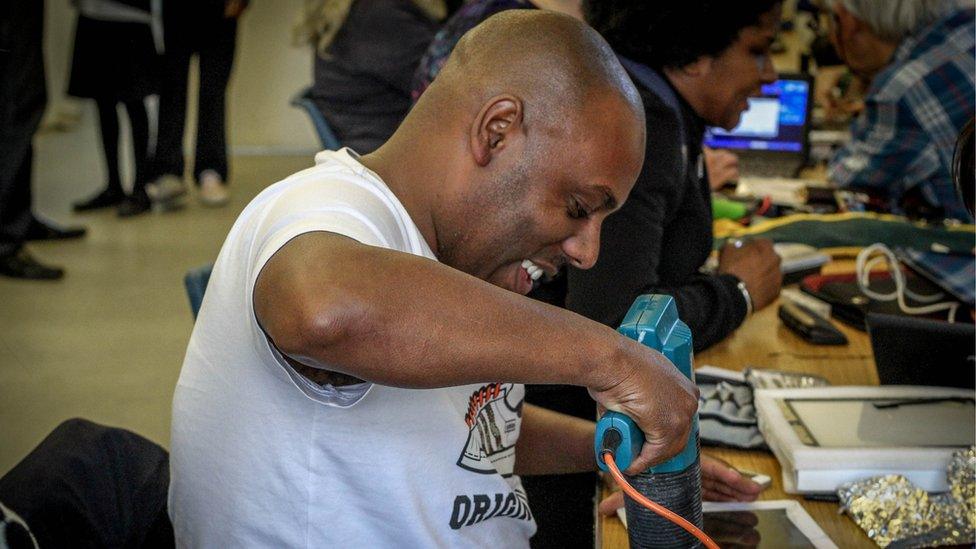
"Repair parties" are teaching people how to fix faulty gadgets
Consumer campaigners are winning the battle for a "right to repair" - which could mean our electrical appliances last longer and are easier to mend.
But when your devices go wrong, how do you know whether there's a ten-minute fix or if your appliance is destined for the scrapheap?
We asked some experts for their tips on the repairs you can do at home.
How hard are repairs?
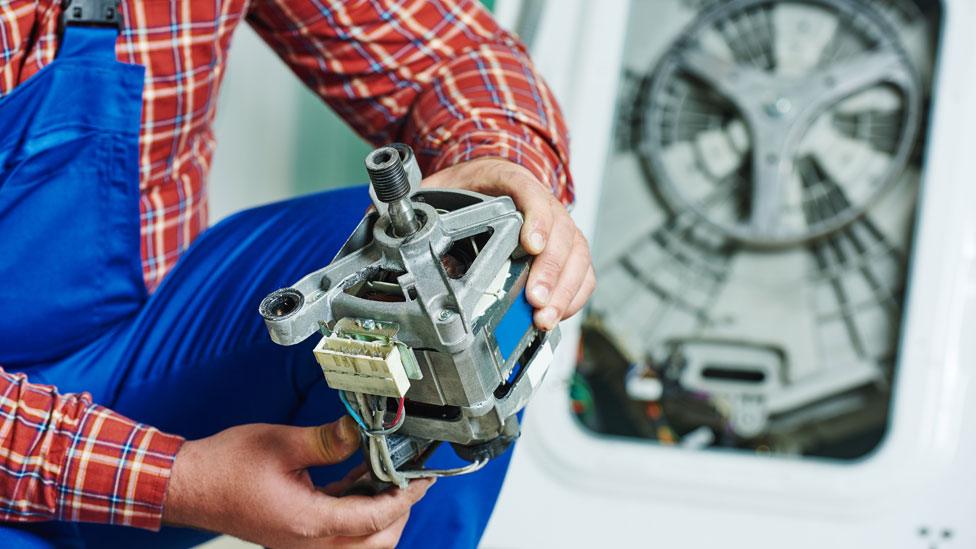
Is it better to fix a washing machine yourself - or call in the professionals?
"A lot of repairs are really, really straightforward. People don't do them because they think electrical items are going to be complicated," says Lee Gilbert, owner of Ransom Spares, which sells spare electrical parts online.
Fixing a washing machine pump, external may sound daunting, he says, but it's a half-hour task that could save you £150 on a repairman.
Mr Gilbert said the job just requires pulling out the machine, disconnecting the hoses, removing a panel and swapping the faulty pump for a new one.
Some consumer electronics fixes are even easier, said Janet Gunter, co-founder of Restart, a project which organises parties across the country where people teach each other repair skills.
If you've got a faulty headphone socket on your phone, it could be caused by a build-up of dust. Simply dig out the fluff with a toothpick, external, Restart advises.
What are some of the most common fixes?
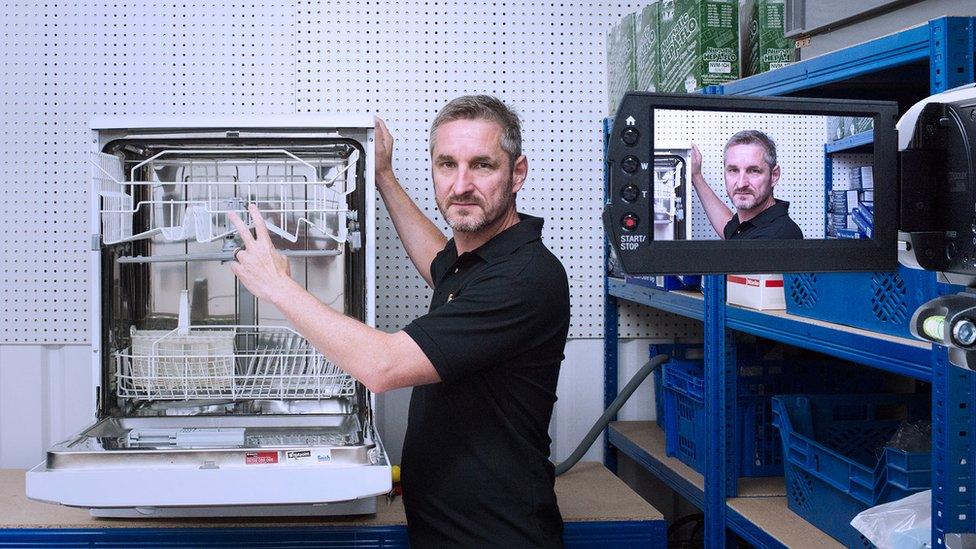
Lee Gilbert is one of many repair experts producing instructional videos online
Laptops and mobile phones are the usual devices in need of attention at Restart parties.
There, people might learn how to stop their computer overheating - using compressed air or a brush to clean the fan, external can get a laptop running cooler again.
For Mr Gilbert, faulty ovens which won't heat up are a common complaint. "You turn it on and 20 minutes later, it's still cold," he says.
He said it takes just ten minutes, external and costs £20 to £40 to replace the heating element.
Disconnect the oven from the mains, remove the screws on a cover at the back of the oven, and swap in the new element, he says.
"The oven is one of the most expensive appliances in the house. So when it doesn't heat up, people think that's going to cost them £600 to get a new one."
How can I stay safe?
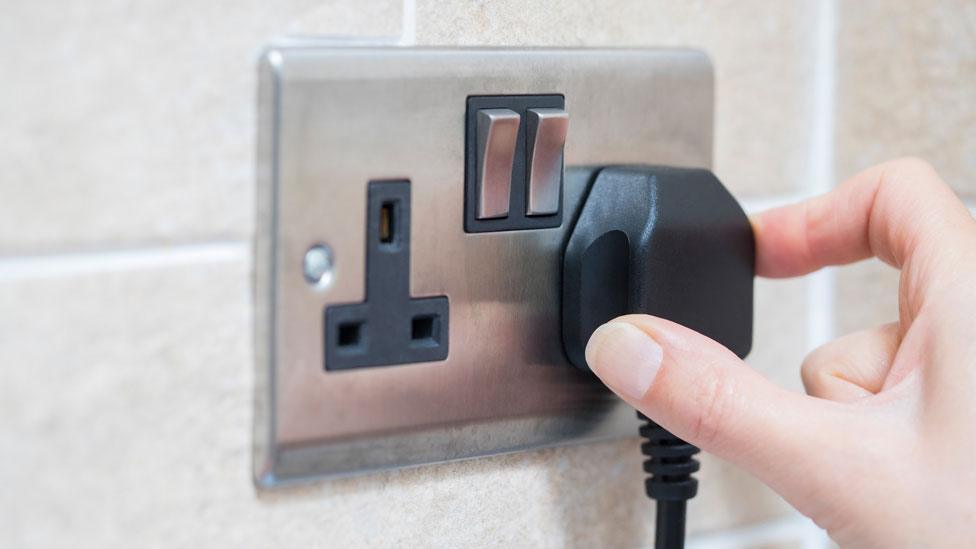
If you're new to repairing electrical appliances, Ms Gunter advises steering clear of mains-powered devices.
"It's a good idea to get started with battery-powered devices, which are much safer, as a way to get confidence," she says.
If you are tackling larger devices, everything should be disconnected from the mains before you start, Mr Gilbert adds.
He says DIYers should also watch out for scorch marks: it might indicate an electrical fault which is not safe for amateurs to tackle.
"The safety principles are pretty much common sense," he says. But he also advises taking photos as you go - so you can be sure to put everything back in the right place.
Is there anything that can't be fixed?

Flat-screen TVs may look good - but it can be impossible to repair a damaged screen
Restart has campaigned for products to be easier to repair with plenty of spare parts - but not all manufacturers have got the message.
"Mostly it's low-cost or off-brand appliances which are impossible to repair - you're never going to get a spare part. If your £6 or £7 kettle or toaster goes wrong, you probably can't fix it," Ms Gunter says.
Flat-screen TVs are also often irreparable, she says. "If the screen is damaged, it's pretty much game over."
And Ms Gunter predicts that "bundling" will become a growing obstacle to the right to repair. That is, some manufacturers will only sell several spare parts bundled together, making repairs more costly.
"That's the way that manufacturers will get around everything," she says.
Allow X content?
This article contains content provided by X. We ask for your permission before anything is loaded, as they may be using cookies and other technologies. You may want to read X’s cookie policy, external and privacy policy, external before accepting. To view this content choose ‘accept and continue’.
- Published9 January 2019
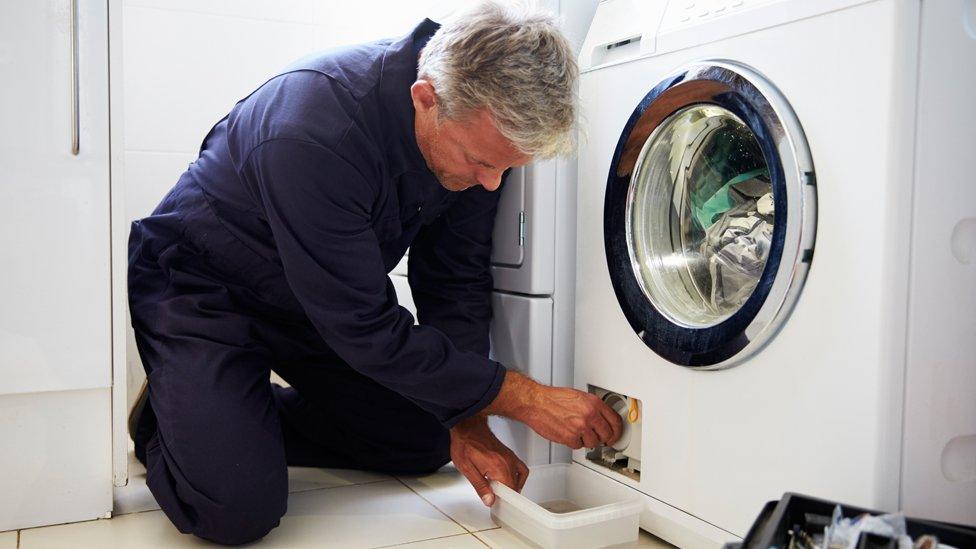
- Published30 January 2017
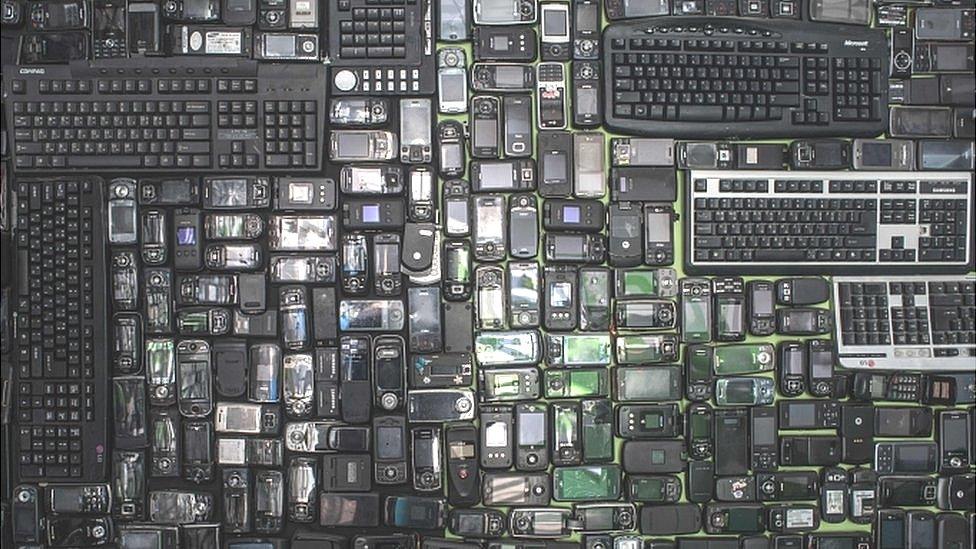
- Published8 January 2016
